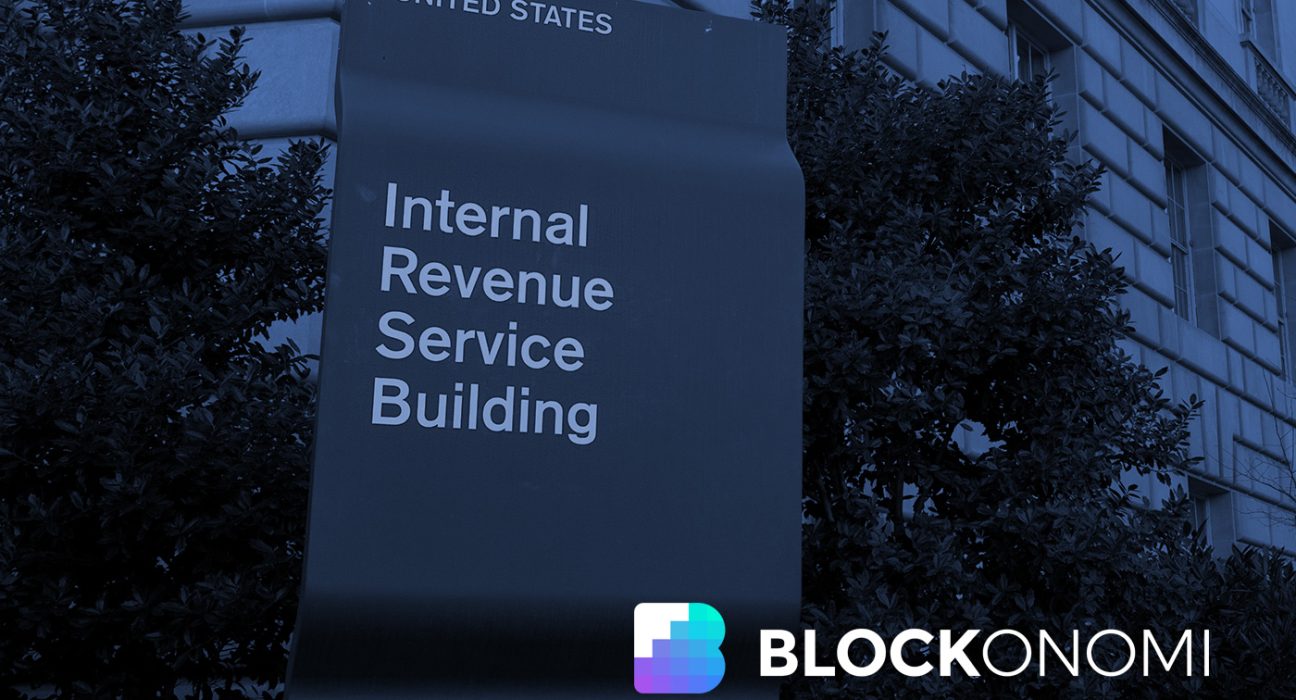It appears the United States isn’t kidding when it comes to cracking down on crypto.
The Internal Revenue Service (IRS), the tax-enforcing agency for the U.S., revealed that it will be convening with some of the crypto industry’s most important firms and “advocates” to discuss the taxation of digital currencies.
IRS Ramps Up Crypto Efforts
According to an IRS communique received by Bloomberg Tax, the IRS is calling upon crypto companies and executives to convene at a March 3rd summit that will discuss how the tax agency can “balance taxpayer service with regulatory enforcement.”
The summit will purportedly involve at least four panels, during which information will be shared about crypto exchanges, compliance, and tax returns.
The planning of the IRS summit comes shortly after the Joint Chiefs of Global Tax Enforcement— the IRS and its counterparts from the U.K., Canada, and the Netherlands — convened to share “data, tools and tax enforcement strategies” in a bid to find those trying to participate in ” mitigate cross-border money-laundering, tax evasion, and cybercrime.”
The meeting purportedly saw the agencies share data about “dozens” of potential criminals using Bitcoin and other cryptocurrencies to perpetrate their crime.
Also, the IRS recently began to circulate a draft of the new Form 1040, Schedule 1, Additional Income and Adjustments to Income. The draft has the following question right at the top:
“At any time during 2019, did you receive, sell, send, exchange, or otherwise acquire any financial interest in any virtual currency?”
Following in Footsteps of Treasury & White House
This move comes as both the White House and U.S. Treasury have revealed an intent to further regulate the cryptocurrency space, seemingly responding to the recent revival in the market.
Steven Mnuchin, the Secretary of the U.S. Treasury, said in a hearing held by the Senate Finance Committee last week that the FinCEN branch of the Treasury will soon roll out “significant new requirements” for entities working with cryptocurrency.
Mnuchin in the wake of Facebook’s reveal of Libra that cryptocurrencies are a national security threat, so this move (or hint of an impending move) was a long time coming.
Also, a White House budget proposal for the fiscal year of 2021 suggested returning the United States Secret Service — which actually enforces many financial crimes in America — to the jurisdiction of the Treasury.
The budget proposal suggests that this move will “create new efficiencies” in how the Service investigates potential criminal acts enabled by digital assets and will “prepare the Nation to face the threats of tomorrow.”
Not All Bad
While there are clear attempts by American agencies to dramatically reduce the amount of crime enabled by cryptocurrency, there are friendly attempts by U.S. regulators to drive innovation and adoption of digital assets, Bitcoin included, through the introduction of certain acts and such.
Per previous reports from Blockonomi, five senators in January introduced Senate bill 2594, which will make it legal for Hawaiian banks to store digital assets, which is a class that includes “virtual currencies,” “digital securities,” and “open blockchain tokens.”
The wording in this bill strongly implies Bitcoin, Ethereum, and other open/decentralized coins will be able to be stored by banks should the bill pass.
Also, U.S. House Representatives DelBene, Schweikert, Soto, and Emmer continue to push the Virtual Currency Tax Fairness Act of 2020. The act, should it become law, would solve a primary issue in spending cryptocurrency for day-to-day transactions, ensuring that small crypto transactions would be exempt from capital gains.

3 Comments